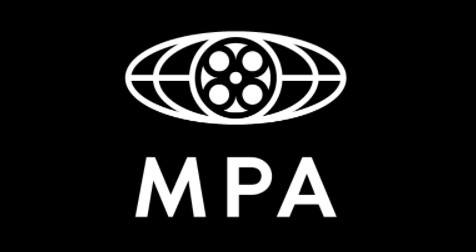When several major studios filed a copyright lawsuit against PrimeWire last year, it shouldn’t have come as much of a surprise. It did nonetheless – it was a long time coming.
More than a decade ago, a successful pirate streaming site called LetMeWatchThis reportedly ran into domain issues, and after a swift rebranding exercise, returned as 1Channel. What prompted the site to change its name yet again isn’t clear but, after adopting the name PrimeWire, traffic poured in from all over the world.
Due to Hollywood legal action, PrimeWire was among the first 30 sites to be blocked in the UK back in 2013, but that was just the beginning. Similar blocking injunctions followed in Australia, Ireland, Norway, Denmark, Portugal and beyond.
Despite being given the opportunity to protest at least some of these blocking measures, PrimeWire never appeared in court to mount a defense, even by email. When the MPAA reported the site to the USTR in 2013, it was hoped PrimeWire would fold but, despite additional reports over subsequent years, it carried on regardless.
Becoming a permanent fixture on the Police Intellectual Property Crime Unit’s ‘Infringing Website List’ was meant to increase the pressure. However, as far as we’re aware, Hollywood never filed a lawsuit. Roughly nine years ago the MPA believed PrimeWire’s servers were in Estonia but, while access to hardware can be useful, hard drives can’t be sued.
Movie and TV Giants Sue PrimeWire
Then, out of the blue in December 2021, Paramount, Universal, Warner, Columbia, Disney, and Netflix filed a lawsuit against PrimeWire in the U.S. They demanded millions in damages and an all-important injunction, the first of which was granted early 2022.
Maintaining its long-held traditions, PrimeWire immediately moved to neutralize potential domain seizures while carrying on as normal, in defiance of the injunction.
Just weeks after that, PrimeWire suddenly ‘went legal’ by removing all links to pirated movies and TV shows, and then pledged to install upload filters to prevent any more piracy. There was even some email correspondence with the plaintiffs which, if anything, was even more surprising.
Traffic Tanks, Hollywood Piles on the Pressure
After removing pirated content, PrimeWire’s traffic immediately collapsed by more than 60%, but the studios weren’t impressed. Based on past behavior patterns, they believed that PrimeWire could make a comeback, so they pressed for a default judgment and permanent injunction.
The court agreed and awarded a partial default judgment with damages to be decided at a later date. PrimeWire was ordered to shut down – whether or not any pirated content was still available via the site. Some registrars still hadn’t complied with the terms of the preliminary injunction, meaning that PrimeWire still had domains and a web presence.
PrimeWire didn’t officially appear in the lawsuit so was never likely to win. Importantly, it didn’t shut down either and in July attempted a comeback but that was soon thwarted by the MPA’s investigators.
Filings in the case during October revealed that the MPA had gone to extraordinary lengths to track down PrimeWire’s operator but had ultimately run into shell companies, various obfuscation measures, and eventually a dead end. Specifically, a small but notorious property in the UK linked to international crime, money laundering, and fried chicken.
MPA Could Not Prove PrimeWire’s Actual Profits
Despite the studios’ best efforts to quantify PrimeWire’s profits, the odds were always stacked against them. Instead, they requested a judgment of $20.7m, which in the scheme of things was pretty reasonable. Earlier this year PrimeWire was allegedly offering 10,000 titles owned by the plaintiff studios and in October 2021, received 20 million visitors from the United States alone.
The studios aimed low by listing just 138 infringed works, but with maximum statutory damages of $150,000 available for each work, that can soon add up. In his judgment dated December 9, Judge Mark C. Scarsi agrees that the anonymous PrimeWire defendants were well aware that their conduct was unlawful.
Particularly Egregious Infringment, Maximum Damages
“The Court finds that Defendants committed willful infringement, meriting an award of enhanced damages. Defendants’ conduct is particularly egregious. Despite Plaintiffs’ repeated attempts to hale Defendants into court, Defendants have either ignored Plaintiffs’ emails or anonymously denied any wrongdoing,” Judge Scarsi’s judgment reads.
“Further, Defendants have evaded the Court’s injunctions by transferring operations to different domain names, citing ‘recent legal action’ on their now-defunct webpage. Additionally, the substantial web traffic Defendants gained from illegally streaming Plaintiffs’ copyrighted works has likely created a heavy windfall in advertising revenue at Plaintiffs’ expense.”
Noting that the defendants’ conduct “leaves little doubt” that maximum statutory damages are warranted, Judge Scarsi highlights the value of the studios’ copyrights, the revenue lost through PrimeWire’s actions, and in particular the negative effect on the legitimate streaming market.
“Defendants’ unauthorized and uncompensated use of the copyrighted works causes significant revenue loss because illegitimate streaming sources, like Defendants’, divert potentially millions of dollars of paid viewership away from licensed sources contributing to Plaintiffs’ revenue streams,” the judgment continues.
“The high value of Plaintiffs’ copyrights also supports a finding that Defendants’ infringement causes significant revenue losses. And finally, maximum statutory damages would serve the purpose of deterring Defendants and others from infringing Plaintiffs’ valuable works.”
In line with the studios’ request, the court awarded maximum statutory damages of $150,000 per work, a total of $20,700,000 for the 138 works in suit. The court also awarded $417,600 in attorneys’ fees, an amount described as “reasonable and appropriate.”
The proposed judgment, final judgment, and minutes can be found here (1,2,3, pdf)





